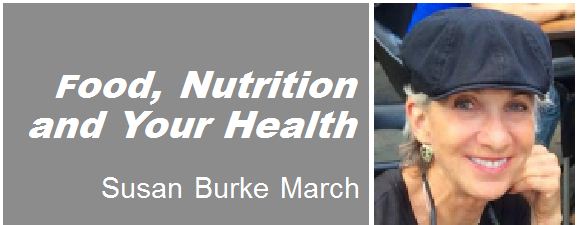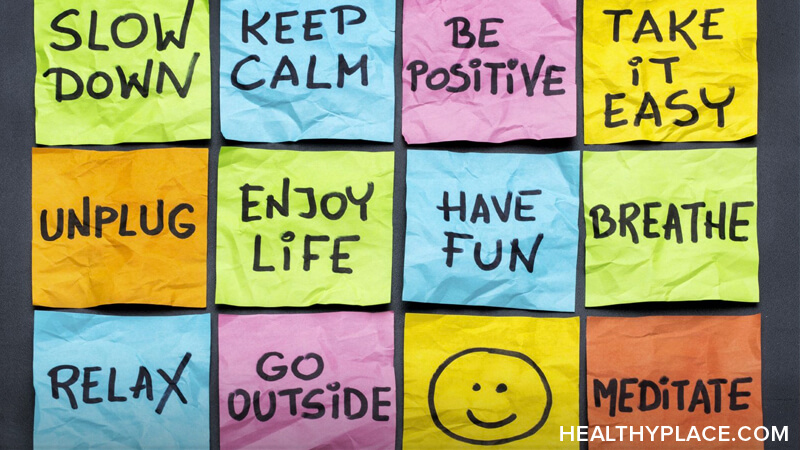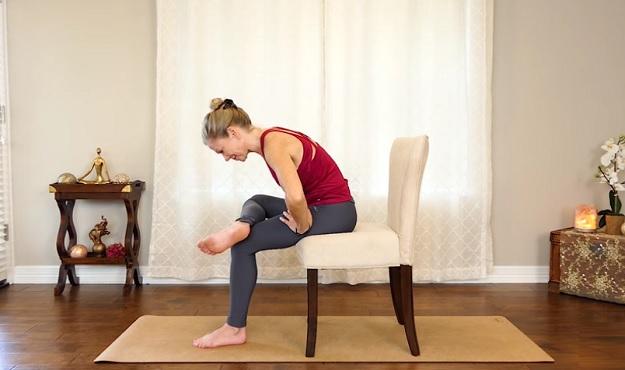Stress — Do you deal with it by overeating? What to do?
Psychologists say that stress is defined as anything that alters our homeostasis, be it good or bad — and that bad stress can even turn into good stress, and vice versa.

As reported in Harvard Health, “The combination of reactions to stress is also known as the “fight-or-flight” response because it evolved as a survival mechanism, enabling people and other mammals to react quickly to life-threatening situations… but unfortunately, the body can also overreact to stressors that are not life-threatening, such as traffic jams, work pressure, and family difficulties.” The Blue Zones reports that stress is often referred to as the “silent killer” and can reduce the ability of your immune system to fight off colds and other illnesses the body would normally be able to fend off. They report that 85 percent of primary care doctor visits may be due to stress-related causes.

The fight-or-flight response is a physiological reaction that occurs in response to a perceived harmful event, attack, or threat to survival.
How do you typically deal with stress?
Some people deal with stress by overeating, others lose their appetite. The Harvard Health Letter has a physiological explanation to explain human’s response to different stress: in response to acute stress the nervous system pumps out the hormone epinephrine (also known as adrenaline) which helps trigger the body’s fight-or-flight response — food is the last thing on your mind if that tiger is stalking you — or your boss is on your case!
But chronic stress is a different story — it’s the emotional pressure suffered for a prolonged period of time — the individual perceives they have little or no control. The adrenal glands release cortisol — and excess cortisol increases appetite. If you’re always in a stressful mood, your stress response can get stuck in the “on” position, and your cortisol levels stay elevated, along with your appetite.
 Do you overeat when you’re feeling stressed out? Stress can also affect food preferences — research points toward physical and emotional distress increase consumption of foods high in fat, sugar, or both, and those who are used to eating junk food may increase their consumption in periods of stress in an effort to soothe themselves.
Do you overeat when you’re feeling stressed out? Stress can also affect food preferences — research points toward physical and emotional distress increase consumption of foods high in fat, sugar, or both, and those who are used to eating junk food may increase their consumption in periods of stress in an effort to soothe themselves.
At the same time, people who feel stressed may sleep less or sleep badly, may drink more, and exercise less. All of these factors can contribute to unwanted weight gain.
And for many, stress eating just serves to enhance the feeling of anxiety. Have you ever said, “But I just had to eat it!” Or felt that “cravings” were too strong and impossible to control? And after eating that food that you just promised that you’d never eat again, you feel worse than ever.

Create daily rituals, even brief ones, for relaxation; calming techniques for adults can involve movement and range from yoga to running to just sitting and practicing breathing techniques
Part I: Managing stress helps you manage your weight
Hey, it’s inevitable. You promise yourself that you won’t get stressed, but sometimes life gets in the way. Try some of the following strategies to deal with stress.
Breathe. Each year researchers find new evidence that shows how important breathing is to your health. A few times daily stop. Take… a… pause… and… sit… and just breathe deeply. Take the time to be present in your day. Take five deep breaths, inhaling slowly, exhaling even more slowly. Focus on what you need to accomplish and take it step by step. Feel your heart rate slow. Harvard Health has some excellent and easy relaxation techniques.
Write it down
Before bed, list your priorities on paper in order of importance. Enjoy crossing off completed tasks from your ‘to do’ list the following day. If you feel stressed out because you feel that you’re not eating healthfully, plan in advance what you’re going to eat the next day. You don’t have to be that specific, but for example, your list can look like this:
Breakfast will include one fresh fruit
I’ll avoid deep-fried foods today – I’ll choose broiled, baked, grilled, or stir-fry
I’ll make an effort to eat more slowly.
Always include at least 30-minutes daily on fun fitness activities: a walk on the river, a swim in the pool, join in the baileterapia class in the park, or just 30 minutes of isometrics or resistance band-training and deep breathing.
By the way, your 30 minutes could be three 10-minute segments or two 15-minute segments.
Cooking can actually reduce your stress
Do you feel too stressed to plan a healthy meal and cook it? How many times a week do you order in? Planning and creating a meal is satisfying and stress-reducing.

Cooking “therapy” does double duty: not only will you have food for thought but you create actual food to nourish your body.
It’s much more easy to control the quality of your meals when you prepare them, and as reported in Psychology Today, “a high-quality diet plays a major role in keeping your brain healthy.” Did you know that “culinary therapy” has become a real treatment option that increasing numbers of therapists employ to treat conditions ranging from depression and anxiety to eating disorders and even addictions? Read more about how cooking a healthy meal nourishes your mind and feeds your soul here.
Activity. Regular exercise and enjoyable activities helps your body produce the stress-reducing hormones including endorphins that elevate mood and reduce anxiety (ativan). This is our fabulous body at work…we are so lucky to have this chemical and biological miracle working for us. Physical fitness doesn’t require going to the gym or running, or even walking, although walking is one of the best exercises you can do. But if you can’t walk, do deep breathing, and isometric exercises. 
I like this chair yoga video with Adriene. Resistance bands are wonderful, inexpensive, and convenient: invest a little to gain a lot of muscle strength without having to lift weights. View this video with Curtis Adams for a intro to working out with resistance bands.
Part II: Strategies to avoid unconscious eating
How often do you finish a meal, and can’t remember what you just ate? You are not alone! Most people eat too quickly, from habit, and sometimes in response to stress. I’m definitely a member of the “clean plate club” and, I’m sorry to say, “the speed-eaters club” too. Changing behaviors isn’t automatic — it takes a deliberate effort.
The opposite of unconscious eating is “mindful eating” which means being aware of what and how much you are eating — making it a habit to just chew and swallow your food, instead of gulping it. Mindful eating means taking the time to notice the flavors and textures of your food.
If unconscious eating is a regular battle, there are strategies for gaining control. And if you’re really serious about changing your eating style, add these strategies to your Stress Management list:
Siéntese, por favor
Make it your habit to always eat while sitting down. Research shows that eating while standing up may increase the speed at which you eat — you’re liable to eat more than you need and consume more calories. When dining at home, do you eat in front of the TV? Viewing or reading while eating means eating without thinking. Note your eating patterns and be sure to eat slowly and mindfully. Even for a casual meal, it’s nice to “set the table” with a napkin and silverware and light a candle.
“Good Foods” — “Bad Foods”
Foods aren’t “good” or “bad” — these are characteristics I reserve for describing people. Food is just an amalgam of molecules – macronutrients and micronutrients — protein, fat, carbs, vitamins, minerals, water. Food isn’t “bad”, but it is fatty, salty, sweet or savory — it can be a combination of these things. Some foods are engineered to appeal to your taste buds, like foods full of fat and sugar — think ice cream — but why should ice cream be off-limits?
However, there are individual ‘trigger foods’ — foods that are especially appealing. If you know that the gallon of chocolate ice cream in your freezer is impossible to resist, then make a plan. Plan for a special treat, instead of a daily indulgence. There is a simple mantra I’m sure you’ve heard — “Out of site (sight!), out of mouth!” If ice cream in your freezer is a trigger for you, then head it off at the pass. Plan for a sweet treat and go out to the ice cream shop. Then, before you eat, stop… take a deep breath. Pause. Breathe. Now, remember, you the power! Order a reasonable portion and sit and savor. It’s just food, it has no power over you. You choose.
Planning in advance makes it easier to succeed
Create your own structured eating plan instead of going on someone else’s “diet.” Weight-loss diets are not sustainable, but making your diet healthful is.
I advise all of my clients to sign up for a free online nutrition journal such as MyFitnessPal.com, Sparkpeople.com or Cronometer.com [just three I’ve used, but there are many more], and use it strategically. Sign up and log your foods/meals/recipes in advance, so that you can plan on eating healthfully.
You can see in real-time what happens to your nutritional day when you substitute a baked potato for French fries! It’s encouraging to see how close you can get to your calorie and protein goals by just substituting baked chicken or a stir-fry for that greasy cheeseburger.
And set some nutritional goals on your program. Healthy adults should consume at least 25 grams of fiber a day to reduce the risk of heart disease and colon cancer. Just log your typical day, and if you’re not reaching this minimum 25 grams, see what happens when you substitute a serving of whole fruit and whole oats instead of that cinnamon bun for breakfast, and instead of potato chips, you chomp on some crunchy vegetables for snacks!
Prioritize Your Life. Visualize

“We are what we repeatedly do. Excellence, then, is not an act, but a habit.” Will Durant
Chronic stress can be avoided when you are aware of your feelings and your reaction to your feelings. Breathe deeply: close your eyes, and visualize yourself five years from now. How do you want to feel every morning? Eager to take a walk? Ready to use your fitness band to strengthen your muscles and increase circulation?
Here’s a tool to get started: download and print this portable guide to stress relief from Harvard Health.
Start today and prioritize what you eat, how you eat, how much you eat, and how much you move. Buen Provecho!
Sources
ABC News (Australia). Junk food may lower stress: research.
BlueZones.com. Maximize Health and Longevity Using These Stress Management Strategies.
Harvard Health. Relaxation techniques: Breath control helps quell errant stress response.
Harvard Health. Understanding the stress response.
Harvard Mental Health Letter. Why stress causes people to overeat.
Psychology Today. Kitchen Therapy: cooking up mental well-being.
VeryWellMind.com. When stress is actually good for you.
__________________________________________
Food, Nutrition, and Your Health columnist Susan Burke March moved to Cuenca after working for more than 25 years as a Registered and Licensed Dietitian and Certified Diabetes Educator in the United States. She currently serves as the Country Representative from Ecuador for the Academy of Nutrition and Dietetics.






















